Come Again Luciano, That Was A Terrible Goof
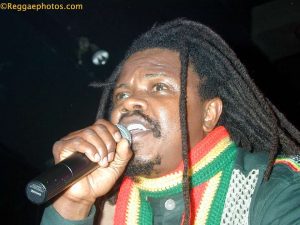
Photo Courtesy:reggaephotos.com
By Kwesi E. Baako
Come Again Selekta Luciano
I was prompted to write this piece based on a video I saw of reggae superstar Luciano on social media. I am sure a lot of folks have seen this video too judging from the level of engagement it has engendered on social media. But for those who have not seen it, the video is one of Luciano in a TV interview. After seeing the video, my biggest disappointment was that the question he was answering did not appear in the clip that is making the rounds. It started with his answer. And that answer, to whatever question was asked was as disappointing as it seemed candid. Here’s why:
Luciano lambasted Ghanaian and African Reggae in the interview. He said Africans try to “imitate us”. He insinuates that the African reggae circuit is rubbish. He singles out Stonebwoy and Shatta Wale of Ghana for focused contempt.
Where do I start?
Reggae music has fed off the image of Africa since its inception. Reggae music is the prime music of resistance, featuring in the liberation struggles of not only Africans or Black people but other oppressed peoples the world over. Africa, the slavery of its peoples and the struggles to return to a place of glory formed the storehouse of themes, which gave birth to or at least breastfed the genre to what it has become today. Burning Spear, Bob Marley, Toots and the Maytals, Lee Scratch Perry; and the more contemporary Sizzla, Anthony B, Chronixx and other highly rated acts including heavyweight Luciano himself point to Africa as a Mecca of sorts.
There is this raging (albeit whimsical) argument about whether reggae not made in Jamaica is reggae; about who ‘owns’ the genre, about whether reggae is a ‘Rasta ting’ or not. This seems like a trifle argument but it is heavily wedged in a much bigger and more worrisome issue; that of the covert re-segregation of the African race.
After slavery was ‘abolished’ it was replaced by a system not much different from the principles of that inglorious system. Dark skinned people were put into positions where they feel superior to their kith and kin. On a bigger scale, a deep form of mistrust has been planted between ‘continental’ Africans and those in the West, remnants of the ‘stolen generation(s)’. Caribbean Africans look down on continental Africans, don’t want to associate with them or claim their birthright, unless there are dollar bills attached to the prospect, as in sing about Africa, appear more African than the continental African and get paid big by the ‘empire’ that has bought up the genre and is promoting it in the direction they deem fit. All the spirituality that exudes from the husky tones of Burning Spear, from the shrill wails of Bob Marley, from the avant-garde sing-jaying of Sizzla Kalonji, seem to be only a façade meant not just as a commercial enterprise but as a tool for further pulling the wool over the eyes of Black people who may falsely see reggae as a spiritual conduit for renewed emancipation.
Back to Luciano and the unfortunate interview: As I said, I have not seen the full interview, so my response will only be limited to what I heard in the video. Of course, I am open to rejoinders if I miss a point.
Lucie started in the video by saying Jamaican artists are not big in Africa. BIG LIE! Africans, and especially Ghanaians are actually too much into the foreign artists, much to the chagrin of the local acts. On the reggae front, local artists are only beginning to manage to etch the semblance of a living/career out of the form. Artists have constantly had to fight radio DJs who play all the Jamaican reggae and very little of the Ghanaian stuff. So Luciano’s statement about the artists ‘not big suh dung deh’ is very misleading.
He then goes on to mention Stonebwoy, one of Ghana’s brightest spots in the genre, who has actually been billed to tour with no mean a group as Morgan Heritage, as an example of the ‘mediocre’ stuff they do in Africa. “Only God knows what him sing ‘bout” he chuckles.

Photo Courtesy: starrfmonline.com
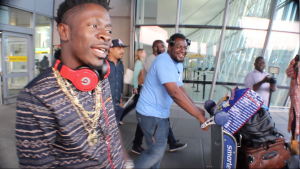
He then adds, [Instead of making the Jamaicans popular there] they create dem own popularity”. I need a whole article to analyze this statement alone, but I trust most people would already have seen the absurdity of such a statement so I will rather use the space to tackle other issues.
Mr. Luciano says Africans look on the Internet, see Jamaicans and emulate them to a laughable end. Sir, we were playing reggae way before the Internet came into existence. Bands like Roots Anabo, Vitamin X etc. were creating very interesting variations of reggae before we heard of an artist called Luciano from Jamaica. And oh, by the way, I did not hear about Luciano from the Internet. I had a Luciano cassette way back in the day; before the www craze kicked in. And I was (still am) a good disciple of conscious reggae music, the type Luciano churns out and so I saw him as who he said he is: The Messenger.
Perhaps what Mr. Lucie is saying is that Africans have no place in the reggae kingdom, a kingdom set up in its name, but controlled by some usurping powers. Perhaps that is why reggae concerts in Africa are so rare. Perhaps that is why some reggae artists who actually go to Africa return with sickening stories of the same land they glorify in their songs.
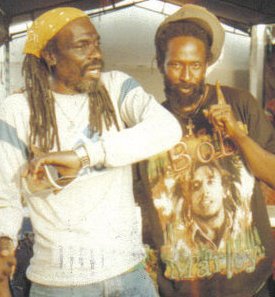
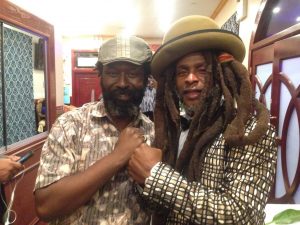
Let me single out a few artists for praise. Joseph Hill of Culture (of most beloved memory) loved Africa. He loved Ghana and his love was genuine. He visited several times and each time you could tell that he felt at home. The first time I met him one on one, in 2006 when he was in Ghana for the Africa Unite Bob Marley concert, he hugged me as if he knew me from Trelawney or back-o-wall. He loved the food. While the Marleys walked around with armed bodyguards, snubbing the ‘local Rastas’, Joseph Hill begged for the opportunity to walk among the people of Kumasi, to speak to them, to feel their pulse. (The Marleys actually refused to let any local reggae acts perform on the huge Bob Marley show they were organizing. They were however comfortable with Ghanaian acts who would not sing reggae being on the bill. They ended up parading a group of Ghanaian artists and choosing which songs they should play; songs that veered off as far from the genre as possible. In Kumasi, they were not allowed to play after they performed the soundcheck)
Let me mention Mutabaruka who has been critical at times (yes, we need that) but whose love for Ghana can hardly be questioned. Sizzla Kalonji, least said the better. The man is Ghana all through. David Hinds of Steel Pulse, Respect due! And even Luciano, if I had not chanced on this interview would have been on this list.
Who Really Owns Reggae?
I don’t think anyone would even argue about this subject. It is indisputably a Jamaican art form, which has taken over the world by storm. But what is the foundation of the genre?
In his article A brief summary of Jamaican music, Piero Scaruffi, a renowned music historian writes: “The paradox of reggae, of course, is that this music “unique to Jamaica” is actually not Jamaican at all, having its foundations in the USA and Africa”.
Inasmuch as this is true, I still would render unto Jamaica what’s Jamaica’s. Reggae music is very Jamaican!
Also the progenitors of the art form all gave credit to influences from African ‘kete’ and ‘burru’ drumming. The point here is this. Doesn’t it make sense for Africans, who influenced the art form to be re-influenced by the art form? A friend of mine made an interesting observation about the music traveling to the West and back, bringing with it the vibration of the children who were stolen away.
Not only did Africa give reggae music the rhythmic influences. It also gave it a wealth of themes to write music from. It gave it a cause to base a whole movement on. Without any apology, I could say that the best reggae tunes are the ones that espouse Africa and the greatest African King Emperor Haile Selassie I the loudest.
That question answered then, lets examine the other salient question, Do Africans; do Ghanaians have the right to play reggae? My response would be a question too. Do Japanese, Europeans etc. have the right to play and promote reggae? Are Jamaican gospel artists and players of other genres legitimate? Going by Lucie’s argument, Jamaicans should only play reggae music, period! And why not? What other genre can they lay claim to ‘inventing’? Yet don’t we have Jamaicans playing everything from Classical to Acid Rock?
All said and done isn’t art self-evolving, as in art copies from other art? Shouldn’t Jamaicans be flattered that they put out a product that Ghanaians and others are so enthralled with and want to ‘copy’? Is Africa not creative enough? What about the African artists who Jamaican artists have covered, like Lucky Dube? Did he know what he was singing about unlike Stonebwoy? Mr. Messenger himself I am reliably informed did record a track or two while in Ghana recently. What was that about? Or did he bring an all-Jamaican crew to do that?
I don’t believe Luciano thought the interview would leave the little island of Jamaica and make its way especially to Ghana else he would have guarded his speech. In this day of the Internet that he refers to, I wish he had considered that.
For me the issue is beyond music. It is one of self-denial, misplaced identity and covert scorn for kith and kin. It reminds me of a fight I had to engage in several times in my student days at the University of Ghana (Legon). I was constantly faced with the argument that (all) continental Africans are responsible for selling away (all) diasporan Africans into slavery. How absurd is that? My simple answer always was: “While your grandfather was being captured, mine was busy fighting for his life or fleeing to safety.” I also like to remind folks that it has been documented that some slave sellers were themselves captured and sent into slavery. So, it would not be fair for a descendant of a man or woman who was caught selling slaves and sent into slavery to accuse me, the descendant of those that kept up the Salaga Wall of selling them away. It is nothing but another cheap ploy by the Slavemaster to cover his abominations and shift the blame on to the victims and sadly a lot of our non-continental brothers and sisters have bought into this idiocy.
Jamaicans and Africans (especially Ghanaians) are ONE people; names like Accompong, Cudjoe etc. and certain words easily give this fact away. The fact that Luciano, a conscious Messenger would make a statement to suggest that we are different people; that it is ‘We and dem’, is just unfortunate and goes against the very tenets of the music genre he is a champion of; to say the very least.
Before I wind up, I would not like to give the impression that I am a huge fan of the kind of mediocrity that has emerged in the image of Reggae/Dancehall in Ghana and other African countries. Our acts try so hard to sound Jamaican, use Jamaican lingo and even pretend they can’t speak the regular English or even their own mother tongues.
These are the ones that prompted Mr. Luciano to say what he said. But then again so what? How do the European reggae artists sound? How do the Japanese acts sound like? Why can we speak English and French, languages of the Slavemaster and not speak patois, the ‘lingo’ of of brothers and sisters the Jamaicans? After all has anyone noticed how close patois and pidgen really are? Reggae is such that without the lingo, it sounds like something else. An example is the ‘reggae’ played in churches and by highlife bands etc.
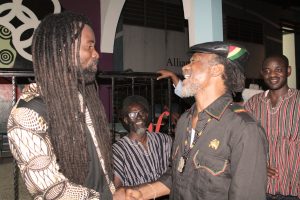
As unfortunate as the statements are, I think it is also a wake-up call to the Ghanaian reggae artists to dig deep for more originality. Roots Anabo did it; they played tunes like ‘Apostolic Jazz’, ‘Singing in the name of the Lord’ ‘Blofo Nyobi’ etc. which were most definitely not Jamaican but which caught the attention of the world. Natty Joe Amanfo speaks heavy Twi within his tunes and he is a very respected dub-poet in France. Even Samini has churned out some beautiful tunes in local dialects, which cannot be written off. It is time to snap out of the pedestrian attempts at creating world-class art and rather concentrate on actually producing art. Yes call it reggae. We have a right to it too… if the Japanese have a stake in reggae, we do have an even bigger stake. But while we are at it, can we make it more representative of our reality? Like gun-talk is not our reality, lets not make it one. I also hear some misguided Ghanaian dancehall artists referring to their ‘baby mamas’. Since when did we have baby mamas?
Let me conclude by saying to Mr. Luciano, we do appreciate the wakeup call but are very disappointed to discover that you are not OUR messenger. We always thought you were. Your music has inspired a lot of us, myself included but now, I listen to your music and fail to connect with the spirituality it preaches. We are very disappointed that our beloved brother does not love us as much as we do him.
We are willing to let it pass, because to err is human and to forgive is divine. But what is more divine than forgiving would be you accepting your goof and if possible making amends… in the form of a counter-statement to rectify that. Ghanaians love their Jamaican brothers and sisters. We yearn to see that love reciprocated. Just me thinking…
One Divine Love, One Blackheart, One Ordained Destiny. Africa for Africans, home and abroad. (And yet Jamaica wants to keep the music to itself…lol)
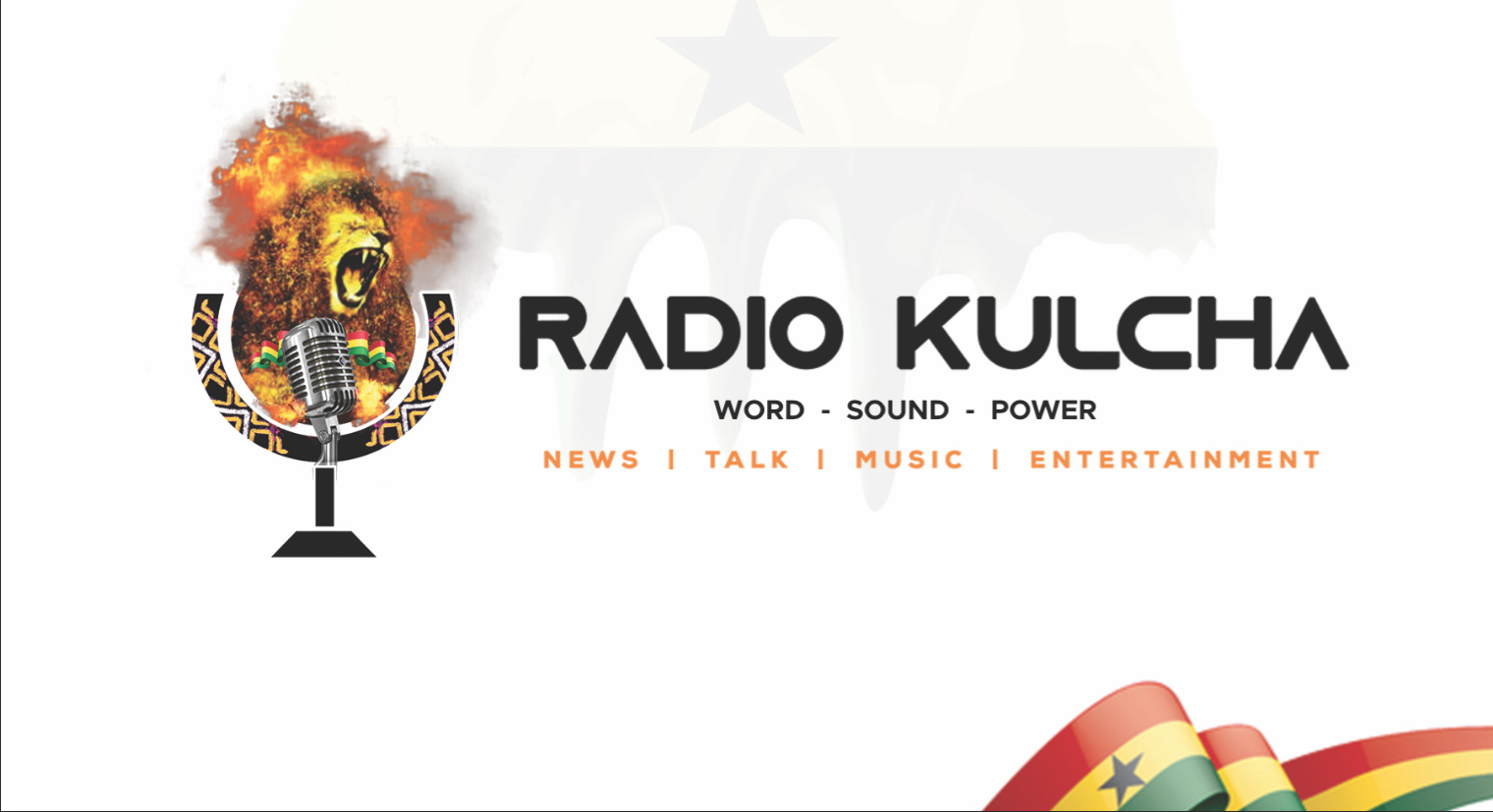
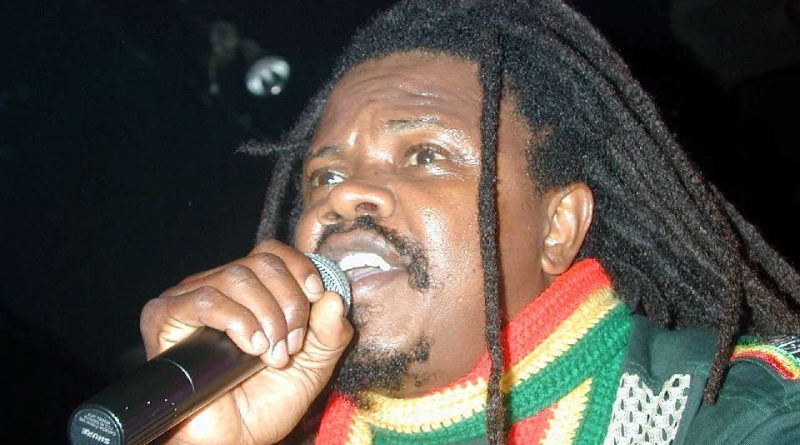
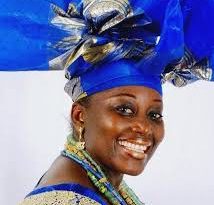
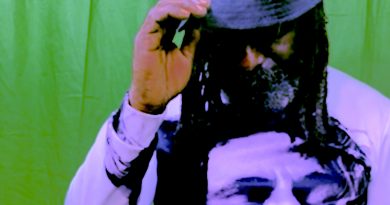
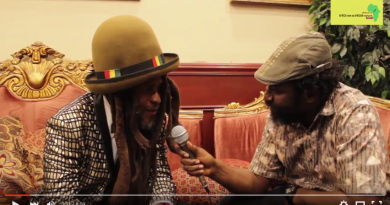

Nice piece. But the full interview tells a different story